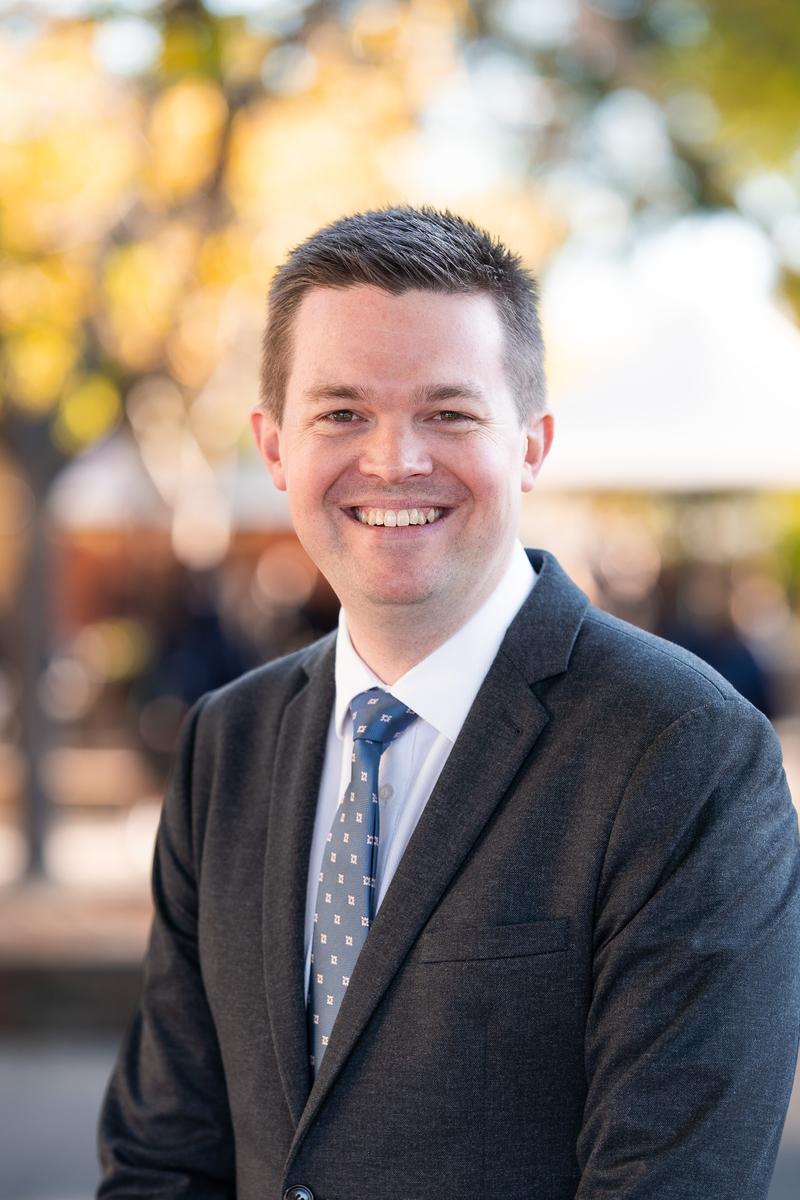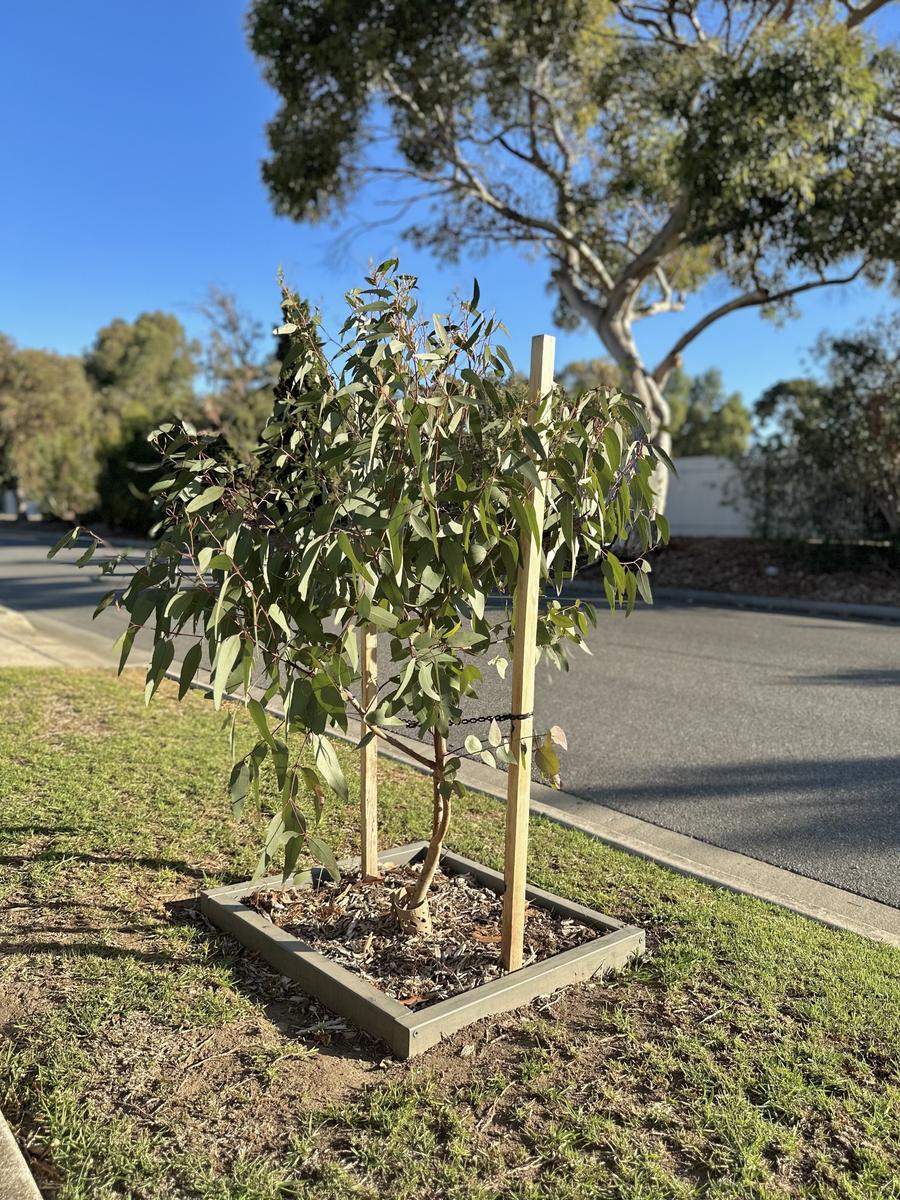From the Human Resources Manager
Matt Purdy

From the Human Resources Manager
Matt Purdy


Councils invest a lot of time and money into maintaining street trees—they can make a big difference to the appearance of the local area. We had a flowering eucalyptus tree outside of our house, which unfortunately became disease-ridden last year and subsequently died. I was actually quite disappointed, as this native tree was particularly nice-looking!
Being a responsible citizen, I politely contacted our local council to notify them that the tree wasn’t looking great. They sent an arborist around to our house, and confirmed my suspicions - the tree had died, and a replacement was going to be required. They specifically offered to replace the tree with the same variety that had died, in keeping with the local area.


Some months later, I came home from work to find a very small, yet lovely street tree put in its place.
While I’m very happy to water the tree to encourage its growth, the responsibility that was bestowed upon me was a little more than I anticipated. After planting the tree, the council left a “gift” for me on the front porch. The gift included information on the tree variety and instructions on how to keep it alive, a bucket (to help water the tree), a bottle of liquid fertiliser, and some new gardening gloves.
I’m not sure how much confidence they had in my ability to keep the tree alive - presumably not very much!
To their credit, the council clearly wanted to do all they could to see the tree grow and thrive, and were going to give me the tools necessary to make sure I could do that.
Like so many things in life, our ability to see something grow and thrive is often dependent on how we are caring for it - the environment we put it in, the things we feed it with, and the care taken to do so.
There’s a lot of stories and verses in scripture that discuss trees, plants, and growth. However, one of those that resonates with me the most is the Parable of the Mustard Seed, which is found in Matthew 13:31-32 (NIV). Jesus explains
“The kingdom of heaven is like a mustard seed, which a man took and planted in his field. Though it is the smallest of all seeds, yet when it grows, it is the largest of garden plants and becomes a tree, so that the birds come and perch in its branches.”
There’s a few things that really stand out to me about this passage.
Initially, it’s the intentionality of the way that the seed is planted. This isn’t just a seed that has ‘randomly’ popped up somewhere. The man in the scripture has planted this seed in his field - presumably a place where he knows the seed is going to be cared for, is under his careful watch, and likely has a better chance of surviving and thriving.
Obviously, another key element of this scripture is the point that the mustard seed begins so small, but then has the capacity to grow into ‘the largest of garden plants’. Like all seeds, it has seemingly humble beginnings, however being placed in the right environment, with the right care, its potential is large.
Finally, the key standout is that when this tree grows, the birds come and perch in its branches (reminds me a little of the Emmaus logo!). This speaks of the tree bringing benefit to others, and its capacity to make a difference to the world around it. While the mustard seed in itself would likely have been useful to some, the branches of the tree can ensure a place of protection, and safety for others also.
However, what is actually required to help the mustard seed grow from its humble beginnings into its potential for others? In a metaphorical sense, if we look at ourselves as the mustard seed in the world around us, what things do we need to build into our lives to ensure we have the best chance of thriving?
Recently, Marni Greenwood (Head of Junior School, Brooklyn Park) and Liz Hinrichsen (Head of Junior School, South Plympton) led a thought-provoking discussion with staff about a wellbeing model known as PERMAH, by Dr Martin Seligman. This was a new model to me, and it talked broadly about some of the things required to build positive emotion, engagement, and meaning into our lives and work. We know as Christians that our faith underpins many of these elements, and helps us to thrive in life. PERMAH refers to:
One source explains in relation to PERMAH that, “By becoming more aware of the elements that make up our wellbeing and integrating these practices into our daily lives, we ensure a balanced approach to personal development and happiness, ultimately leading to a more fulfilling and resilient existence.1”
While not directly a Christian model, think through this model through the lens of your faith.
Start to think about these things, finding ways to build these into your life, and hopefully you too can become a tree that makes a difference to the world around you.
And as for my street tree? You’ll be pleased to know that due to the nice gift from my local council, the tree appears to not only be surviving, but also thriving!
Matt Purdy
Human Resources Manager